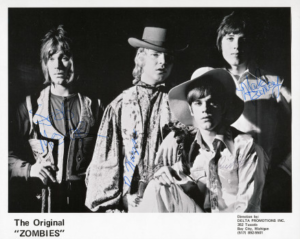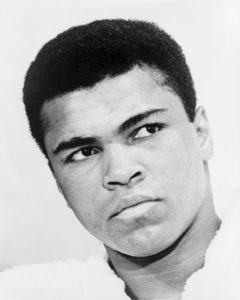The most surprising aspect of our Spotify subscription is that Diane is crazy for it. She is admittedly not a music junkie like any of us here at the Remnants, in fact I asked what artists she followed and she promptly replied, “none.”
She just likes listening to playlists with high energy stuff she can work out to, and soul and funk from any era she can bop to while driving her car. But, I was surprised when she sent me a link to a song the other day, and I could not help but think of the song as analogous to other generations of horny post pubescent music junkies.
The first instance of song where boys are pleading for sex I could think of was the wonderful Good Golly Miss Molly by the one and only Little Richard, who was certainly clear about the whole sex/music thing in the fifties. This was at a time when saying words like “panties” were verboten on screen, for example, as shown in this clip from the Otto Preminger’s 1959 film, Anatomy of a Murder.
This clip of Richard, covering his tune, released in 1958, a year before Anatomy of a Murder came out, speaks for itself with respect to lyrical content, but this clip was so perfect, as it is Richard live, playing for Muhammad Ali’s 50th birthday. And, well I have been thinking a lot about the loss of the great Ali as well as that of Prince, recently, and what a huge loss to our planet their spirits is.
The 60’s were not much better, and though this is indeed my favorite song by the Beach Boys, it is so lily-white in the Pat Boone’s cover of Little Richard’s Tutti Fruitti, sense, it makes my skin crawl. But, Brian Wilson could only hint at a time when “making love” still was kind of like Laurence Olivier suggesting the wooing of Joan Fontaine in Rebecca meant sweet talk behind a potted plant.
Here is the Beach Boys supporting that in the middle class white world very little changed over the 20 or so years between Rebecca and Don’t Worry Baby (which included that awful Boone shit in the middle of the time span). By the way, I love the song, but is this the worst “video” ever?
But, 50 years after Don’t Worry Baby, reality has struck and the world has simultaneously gone to hell in a hand basket, as witnessed by this song, by Strip Johnny, that popped up on Diane’s “Discover Weekly.” She heard it and just had to share with me.
Truth is, I really like this last song a lot! Not as much as Little Richard, though. At least not just yet.


 Last week’s post was about the first album in Neil Young’s “Ditch Trilogy” – Time Fades Away. The next is Tonight’s the Night. This may be somewhat confusing to some Young fans because TTN was released after On the Beach, even though it was recorded before. But it makes more sense to deal with them in chronological order in the context of the Ditch Trilogy story.
Last week’s post was about the first album in Neil Young’s “Ditch Trilogy” – Time Fades Away. The next is Tonight’s the Night. This may be somewhat confusing to some Young fans because TTN was released after On the Beach, even though it was recorded before. But it makes more sense to deal with them in chronological order in the context of the Ditch Trilogy story.